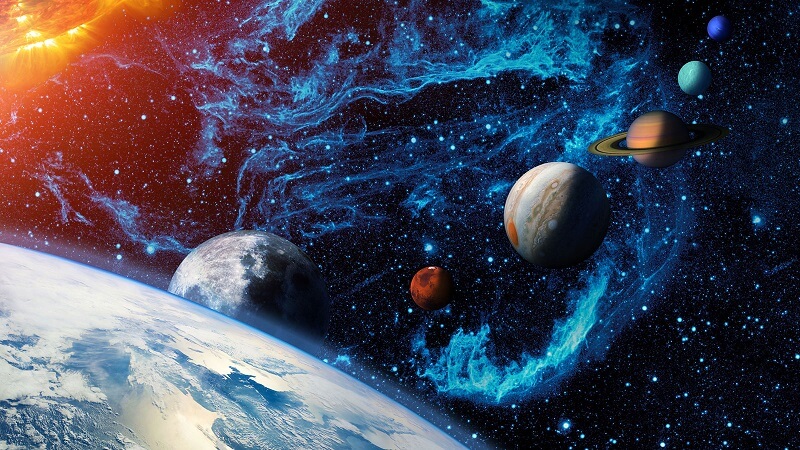
What Does Space Smell Like?
What do walnuts, brake pads and burnt steak have in common? According to astronauts, they all smell like space. While each astronaut smells something a bit different, they all agree ‘space stinks’.
By: Valerie Stimac | How Stuff Works
We all know space is empty, right? Most of space is completely absent of anything – not dust, not planets nor sun, not even air. So, why do many of the people who’ve been to space and spent time in it report that space has a smell?
It turns out that space does smell, and our solar system has a very particular smell. This is likely the result of several factors, but all are clear: Our corner of the universe is kind of stinky. If you’re curious to learn what space smells like and why it smells that way, the explanation might surprise you.
Burning Metal, Almond Cookies
While no astronaut has been unwise enough to unclasp and remove their helmet in the vacuum of space (which is very bad for longevity), astronauts have reported a smell upon returning from space. Specifically, many astronauts report different smells in the airlock after participating in spacewalks.
“The best description I can come up with is metallic; a rather pleasant sweet metallic sensation,” wrote astronaut Don Pettit, according to Space.com. “It reminded me of my college summers where I laboured for many hours with an arc welding torch repairing heavy equipment for a small logging outfit. It reminded me of pleasant sweet-smelling welding fumes. That is the smell of space.” Pettit participated in several EVAs (extravehicular activities or spacewalks) during his NASA career, accumulating repeated experience with the smell.
Other astronauts have described it in similar yet varying ways: “burning metal,” “a distinct odour of ozone, an acrid smell,” “walnuts and brake pads,” “gunpowder” and even “burnt almond cookie.” Much like all wine connoisseurs smell something a bit different in the bottle, astronaut reports differ slightly in their “smelling notes” but have one thing in common: a burnt smell.
What might explain why space smells burnt? There are two possible explanations.
The Oxidation Explanation
One theory to explain the smell of space relates to the process that occurs in the airlock as astronauts return from space to the International Space Station or spacecraft they call home while orbiting Earth. During re-pressurization, the chemical reaction of oxidation occurs; atoms of oxygen in space attach to the astronaut’s suit and float in during the de-pressurized time when the airlock is open and combine to form atmospheric oxygen (O2).
This process is similar to combustion without the flame and smoke – and smells similar too, which might explain the smoky, charred odor astronauts report.
The Stellar Explosion Explanation
A second hypothesis about what might explain the smell of space that astronauts report upon returning through the airlock relates to stellar explosions — that is, dying stars.
Though we’ve only been studying the night sky for a few centuries, the universe dates some 13.7 billion years old, and our solar system is estimated to be about 4.5 billion years old. This means that for literally billions of years before our solar system even formed, stars were being born and dying across the universe.
When stars die, it tends to be a dramatic affair, and this bombastic process creates a compound called polycyclic aromatic hydrocarbons (PAHs). PAHs are present throughout the solar system, including here on Earth; they can be found in some foods, coal and oil, among other materials. They also occur when coal, tobacco, wood, meat and other substances are burned. Perhaps part of the reason space has a distinctly burnt and charcoal smell is because it — like a grill on a summer evening — is emitting smelly PAHs.
Now That’s Interesting
Outside our solar system, it’s not as stinky! Other parts of the universe have other compounds and elements, which create different smells — though no human is likely to ever take a big whiff to confirm. For example, the dust cloud Sagittarius B2 has a high concentration of ethyl formate, which is the organic compound that gives both raspberries and rum their distinctive doors. If you love a good raspberry daiquiri, that’s the corner of the universe for you!
* * *
NEXT UP!
Scientists Find Out If A Lashing Dinosaur Tail Could Generate A Sonic Boom
Every once in a while, scientists embark on a study to test some weird and wacky hypothesis that makes you wonder why. But let’s indulge them; it can be fun
A new study from a team of palaeontologists and aerospace engineers has simulated a dinosaur‘s tail as it lashes about, all to see whether long-necked sauropods could whip their appendages faster than the speed of sound – quick enough to produce the crack of a small, supersonic boom.
Previous research has suggested the dinos could, if their tails had a bullwhip-like structure adding length. If that were true, these herbivorous dinosaurs might have used their tails to defend themselves against predators or nosy neighbours.
* * *
READ MORE: Ex-SpaceX Engineers Bring Mars Colony Tech To Earth
Read more on Space News: This Is What The James Webb Telescope Saw On Titan
Telegram: Stay connected and get the latest updates by following us on Telegram!
We’d love to hear from you! If you have a comment about this article or if you have a tip for a future Collective Spark Story please let us know below in the comment section.
